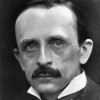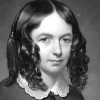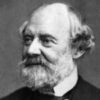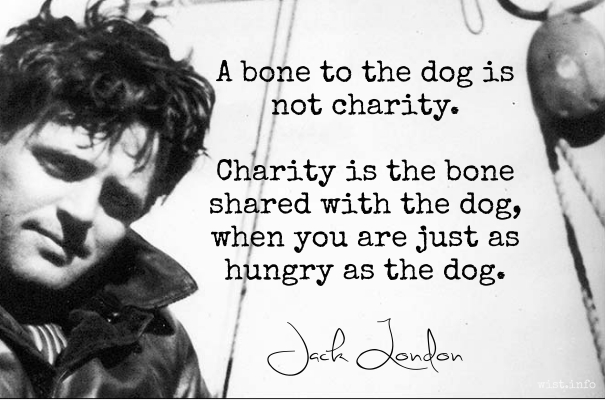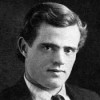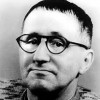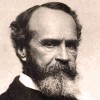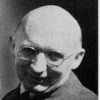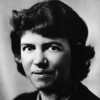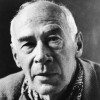Poverty wants some things, Luxury many things, Avarice all things.
Benjamin Franklin (1706-1790) American statesman, scientist, philosopher, aphorist
Poor Richard (1735 ed.)
(Source)
Quotations about:
need
Note not all quotations have been tagged, so Search may find additional quotes on this topic.
The Holy Supper is kept, indeed,
In whatso we share with another’s need;
Not what we give, but what we share, —
For the gift without the giver is bare;
Who gives himself with his alms feeds three, —
Himself, his hungering neighbor, and me.James Russell Lowell (1819-1891) American diplomat, essayist, poet
“The Vision of Sir Launfal,” Part 2, st. 8 (1848)
(Source)
Christ / the Holy Grail speaking to Sir Launfal. See Matthew 25:31-46.
It is often said that the Church is a crutch. Of course it’s a crutch. What makes you think you don’t limp?
William Sloane Coffin, Jr. (1924-2006) American minister, social activist
Credo, “The Church” (2004)
(Source)
We never understand how little we need in this world until we know the loss of it.
James Barrie (1860-1937) Scottish novelist and dramatist
Margaret Ogilvy, ch. 8 “A Panic in the House” (1896)
(Source)
A biographical work about his mother and family. He identifies this as a favorite saying of hers.
Where bread is wanting, all’s to be sold.
Benjamin Franklin (1706-1790) American statesman, scientist, philosopher, aphorist
Poor Richard (1733)
(Source)
Art followed hard on art. Toil triumphed over every obstacle, unrelenting Toil, and Want that pinches when life is hard.
[Tum variae venere artes. Labor omnia vicit
inprobus et duris urgens in rebus egestas.]Virgil (70-19 BC) Roman poet [b. Publius Vergilius Maro; also Vergil]
Georgics [Georgica], Book 1, l. 145ff (1.145) (29 BC) [tr. Fairclough (Loeb) (1916)]
(Source)
On humanity developing the arts and sciences in response to Jove making life difficult.
Compare this to Labor omnia vincit ("Work conquers all"), Oklahoma's state motto.
(Source (Latin)). Alternate translations:
Then came strange arts, fierce labor all subdues.
Inforc'd by bold Necessity, and Want.
[tr. Ogilby (1649)]
And various Arts in order did succeed,
(What cannot endless Labour urg'd by need?)
[tr. Dryden (1709), ll. 217-218]
Thus by long labour arts to arts succeed,
Such is the force of all-compelling need.
[tr. Nevile (1767)]
Thus rous'd by varied wants new arts arose,
And strenuous Labour triumph'd at its close.
[tr. Sotheby (1800)]
Then various arts ensued. Incessant labour and want, in hardships pressing, surmounted every obstacle.
[tr. Davidson (1854)]
Then came the various arts: oh, grand success
Of reckless toil and resolute distress!
[tr. Blackmore (1871)]
Then came the various arts of life. So toil, relentless toil, and the pressure of want in adversity, conquered the world. [tr. Wilkins (1873)]
Then divers arts arose; toil conquered all,
Remorseless toil, and poverty's shrewd push
In times of hardship.
[tr. Rhoades (1881)]
Thus stern Necessity inventive tried
Fresh arts, which life’s increasing wants supplied.
[tr. King (1882)]
Then various arts followed. Unwearying labor overcame every difficulty, and want spurring men on in times of hardship.
[tr. Bryce (1897)]
Then arts many in sort; nothing but yielded to unrelenting toil and the hard pressure of poverty.
[tr. Mackail (1899)]
Then divers arts arose; toil conquered all,
Remorseless toil, and poverty's shrewd push
In times of hardship.
[tr. Greenough (1900)]
Then followed manifold arts: unflinching toil ever one
Triumphs: in hardship's school stern need still drave men on.
[tr. Way (1912)]
Then later times
Brought forth of other arts the varied skill.
Work conquered all, relentless, obstinate,
While poverty and hardship urged it on.
[tr. Williams (1915)]
Then numerous arts arose. Yes, unremitting labour
And harsh necessity's hand will master anything.
[tr. Day-Lewis (1940)]
Then followed all the civilizing arts:
Hard labor conquered all, and pinching need.
[tr. Bovie (1956)]
Then all kinds of skills came into being. Toil has overcome all things, runious toil and need, pressing in harsh circumstances.
[tr. Miles (1980)]
And last the various arts.
Toil mastered everything, relentless toil
And the pressure of pinching poverty.
[tr. Wilkinson (1982)]
Then came the various arts. Hard labour conquered all,
and poverty’s oppression in harsh times.
[tr. Kline (2001)] https://www.poetryintranslation.com/PITBR/Latin/VirgilGeorgicsI.php#anchor_Toc533589845:~:text=then%20came%20the,in%20harsh%20times.
Then came the arts in many guises. Relentless work conquered
all difficulties -- work and urgent need when times were hard.
[tr. Lembke (2004)]
All this before the knowledge and know-how which ensued. Hard work prevailed, hard work and pressing poverty.
[tr. Fallon (2006)]
And then myriad arts. Toil subdued the earth, relentless toil, and the prick of dearth in hardship.
[tr. Johnson (2009)]
Then followed other arts; and everything
Was toil, relentless toil, urged on by need.
[tr. Ferry (2015)]
Hunger never saw bad bread.
Benjamin Franklin (1706-1790) American statesman, scientist, philosopher, aphorist
Poor Richard (1733)
(Source)
Necessity brings him here, not pleasure.
[Necessità ‘l ci ‘nduce, e non diletto.]
Dante Alighieri (1265-1321) Italian poet
The Divine Comedy [Divina Commedia], Book 1 “Inferno,” Canto 12, l. 87 (12.87) [Virgil] (1309) [tr. Sinclair (1939)]
(Source)
Explaining why a living mortal is wandering around Hell. (Source (Italian)). Alternate translations:
Necessity, not Choice, has brought him here.
[tr. Rogers (1782)]
'Twas fate compell'd him, no profane delight.
[tr. Boyd (1802), st. 13]
Thereto induc’d
By strict necessity, not by delight.
[tr. Cary (1814)]
Nor pleasure draws us, but necessity.
[tr. Dayman (1843)]
Necessity brings him to it, and not sport.
[tr. Carlyle (1849)]
Necessity the cause, and not delight.
[tr. Bannerman (1850)]
Necessity compels him, not delight.
[tr. Johnston (1867)]
Necessity, and not delight, impels us.
[tr. Longfellow (1867)]
Necessity leads us on, and not enjoyment.
[tr. Butler (1885)]
Necessity compels us, not delight.
[tr. Minchin (1885)]
Necessity brings him hither and not delight.
[tr. Norton (1892)]
Necessity, not pastime, bringeth him to it.
[tr. Sullivan (1893)]
Necessity doth bring him here, not pastime.
[tr. Griffith (1908)]
Necessity brings him to it, and not whim.
[tr. Binyon (1943)]
Necessity brings him here, not sport nor jest.
[tr. Sayers (1949)]
Fate brings him here, not curiosity.
[tr. Ciardi (1954)]
Necessity brings him to it, and not sport.
[tr. Singleton (1970)]
He travels by necessity, not pleasure.
[tr. Musa (1971)]
Necessity has brought him here, not not pleasure.
[tr. Mandelbaum (1980)]
It is because he must come, not for amusement.
[tr. Sisson (1981)]
It is necessity,
And not pleasure, that puts him on this road.
[tr. Pinsky (1994), ll. 80-81]
Necessity induces us, and not pleasure.
[tr. Durling (1996)]
Necessity brings him here, and not desire.
[tr. Kline (2002)]
Necessity, not pleasure, leads us on.
[tr. Kirkpatrick (2006)]
Necessity compels us, not delight.
[tr. Hollander/Hollander (2007)]
He is brought
Here by necessity, not pleasure.
[tr. James (2013)]
It’s like this: if you have one piece of cake, and you eat it, that’s fine. If you have two pieces of cake, you should probably share some with a friend. But maybe not. Occasionally we could all use two pieces of cake. But if you have a whole cake, and you eat all of it, that’s not very cool. It’s not just selfish, it’s kinda sick and unhealthy.
Patrick Rothfuss (b. 1973) American author
“Concerning Cake, Bilbo Baggins and Charity,” Blog Entry (19 Jan 2014)
(Source)
“You are wise and powerful. Will you not take the Ring?”
“No!” cried Gandalf, springing to his feet. “With that power I should have power too great and terrible. And over me the Ring would gain a power still greater and more deadly.” His eyes flashed and his face was lit as by a fire within. “Do not tempt me! For I do not wish to become like the Dark Lord himself. Yet the way of the Ring to my heart is by pity, pity for weakness and the desire of strength to do good. Do not tempt me! I dare not take it, not even to keep it safe, unused. The wish to wield it would be too great for my strength. I shall have such need of it. Great perils lie before me.”
J.R.R. Tolkien (1892-1973) English writer, fabulist, philologist, academic [John Ronald Reuel Tolkien]
The Lord of the Rings, Vol. 1: The Fellowship of the Ring, Book 1, ch. 2 “The Shadow of the Past” (1954)
(Source)
How do I love thee? Let me count the ways.
I love thee to the depth and breadth and height
My soul can reach, when feeling out of sight
For the ends of being and ideal grace.
I love thee to the level of every day’s
Most quiet need, by sun and candle-light.
I love thee freely, as men strive for right;
I love thee purely, as they turn from praise.
I love thee with the passion put to use
In my old griefs, and with my childhood’s faith.
I love thee with a love I seemed to lose
With my lost saints. I love thee with the breath,
Smiles, tears, of all my life; and, if God choose,
I shall but love thee better after death.Elizabeth Barrett Browning (1806-1861) English poet
Sonnets from the Portuguese, #43 (1850)
(Source)
There are only four kinds of people in this world: those who have been caregivers, those who currently are caregivers, those who will be caregivers, and those who will need caregivers.
Rosalynn Carter (b. 1927) American First Lady (1977-1981), and activist
Helping Yourself Help Others: A Book for Caregivers (1994; 2013) [with S. Golant]
(Source)
This quotation is usually attributed directly to Carter, but she is actually quoting an unnamed caregiver colleague of hers.
Necessity is the only successful adviser.
Charles Reade (1814-1884) English novelist and dramatist
(Attributed)
(Source)
In M. Ballou, Edge-Tools of Speech (1886).
Want is a master which can sometimes make
A man the gravest sacrilege commit.[Perché il bisogno a dispogliar gli altari
ra’ l’uom talvolta, che sel trova avere.]Ludovico Ariosto (1474-1533) Italian poet
Orlando Furioso, Canto 43, st. 90 (1532) [tr. Reynolds (1973)]
Alt. trans.: "For man, alas, will sometimes disarray / The altar, when he finds himself in need ...." [tr. Rose (1831)]
That the beauty of life is a thing of no moment, I suppose few people would venture to assert, and yet most civilized people act as if it were of none, and in so doing are wronging themselves and those that are to come after them; for that beauty, which is what is meant by art, using the word in its widest sense, is, I contend, no mere accident to human life, which people can take or leave as they choose, but a positive necessity of life, if we are to live as nature meant us to; that is, unless we are content to be less than men.
William Morris (1834-1896) British textile designer, writer, socialist activist
“The Beauty of Life,” lecture, Birmingham Society of Arts and School of Design (19 Feb 1880)
(Source)
The human animal needs a freedom seldom mentioned, freedom from intrusion. He needs a little privacy quite as much as he wants understanding or vitamins or exercise or praise.
While we are poor, the necessarys ov life are the luxurys; after we git ritch, the luxurys are the necessarys.
[While we are poor, the necessaries of life are the luxuries; after we get rich, the luxuries are the necessaries.]
Josh Billings (1818-1885) American humorist, aphorist [pseud. of Henry Wheeler Shaw]
Everybody’s Friend, Or; Josh Billing’s Encyclopedia and Proverbial Philosophy of Wit and Humor, “Mollassis Kandy” (1874)
(Source)
The abdomen is the reason why man does not easily take himself for a god.
The very poor can always be depended upon. They never turn away the hungry. Time and again, all over the United States, have I been refused food at the big house on the hill; and always have I received food from the little shack down by the creek or marsh, with its broken windows stuffed with rags and its tired-faced mother broken with labor. Oh! you charity-mongers, go to the poor and learn, for the poor alone are the charitable. They neither give nor withhold from the excess. They have no excess. They give, and they withhold never, from what they need for themselves. A bone to the dog is not charity. Charity is the bone shared with the dog when you are just as hungry as the dog.
Jack London (1876-1916) American novelist
“My Life in the Underworld,” Cosmopolitan Magazine (May 1907)
(Source)
Republished in The Road, Part 1, ch. 1 (1907). Recalling his days as a hobo in 1892.
Your spirit, youth, and valour give me heart, not to mention necessity, which makes even the timid brave.
[Animus, aetas, virtus vostra me hortantur, praeterea necessitudo, que etiam timidos fortis facit.]
Sallust (c. 86-35 BC) Roman historian and politician [Gaius Sallustius Crispus]
Bellum Catilinae [The War of Catiline; The Conspiracy of Catiline], ch. 58, sent. 19 [tr. Rolfe (1931)]
(Source)
Catiline, addressing his troops. Usually shortened to "Necessity makes even the timid brave" [Necessitas etiam timidos fortes facit.]. Original Latin.
Alt. trans.:
- "From your youthful vigor and undaunted courage I expect every advantage. Even the difficulties of our situation inspire me with confidence; for difficulties have often produced prodigies of valor." [tr. Murphy (1807)]
- "Your spirit, your age, your virtue encourage me; and our necessity, too, which even inspires cowards with bravery." [tr. Rose (1831), ch. 61]
- "Your spirit, your age, your valour encourage me, the necessity moreover which makes even the timid brave." [Source (1841)]
- "Your spirit, your age, your valor, give me confidence; to say nothing of necessity, which makes even cowards brave." [tr. Watson (1867)]
- "Your resolution, your age, and your courage, and above all the inevitable nature of the encounter, which often makes even the timid brave, exhort me to this." [tr. Pollard (1882)]
Necessity can make a doubtful action innocent, but it cannot make it commendable.
[La nécessité peut rendre innocente une action douteuse ; mais elle ne saurait la rendre louable.]
Joseph Joubert (1754-1824) French moralist, philosopher, essayist, poet
Pensées [Thoughts], ch. 9 “De la Sagesse, de la Vertu, etc. [On Wisdom and Virtue],” ¶ 20 (1850 ed.) [tr. Auster (1983), 1808]
(Source)
(Source (French)). Alternate translations:
Necessity may render a doubtful act innocent, but it cannot make it praiseworthy.
[tr. Attwell (1896), ¶ 133]
Necessity may render a doubtful action innocent; but it cannot make it praiseworthy.
[tr. Lyttelton (1899), ch. 8, ¶ 16]
The enemy held my will in his power and from it he had made a chain and shackled me. My will was perverse and lust had grown from it, and when I gave in to lust habit was born, and when I did not resist the habit it became a necessity. These were the links which together formed what I have called my chain, and it held me fast in the duress of servitude.
[Velle meum tenebat inimicus et inde mihi catenam fecerat et constrinxerat me. Quippe ex voluntate perversa facta est libido, et dum servitur libidini, facta est consuetudo, et dum consuetudini non resistitur, facta est necessitas. Quibus quasi ansulis sibimet innexis (unde catenam appellavi) tenebat me obstrictum dura servitus.]
Augustine of Hippo (354-430) Christian church father, philosopher, saint [b. Aurelius Augustinus]
Confessions, Book 8, ch. 5 / ¶ 10 (8.5.10) (c. AD 398) [tr. Pine-Coffin (1961)]
(Source)
Sometimes paraphrased "Habit, if not resisted, soon becomes necessity."
(Source (Latin)). Alternate translations:
My will the enemy held, and thence had made a chain for me, and bound me. For of a forward will, was a lust made; and a lust served, became custom; and custom not resisted, became necessity. By which links, as it were, joined together (whence I called it a chain) a hard bondage held me enthralled.
[tr. Pusey (1838), and ed. Shedd (1860)]
My will was the enemy master of, and thence had made a chain for me and bound me. Because of a perverse will was lust made; and lust indulged in became custom; and custom not resisted became necessity. By which links, as it were, joined together (whence I term it a “chain”), did a hard bondage hold me enthralled.
[tr. Pilkington (1876)]
The enemy held my will , and with me made a chain for me and bound me. For from a perverse will, lust was made; and in obeying lust, habit was formed, and habit not resisted, became necessity. By which links, as it were, joined together -- therefore I call it a chain -- was I held shackled with a hard bondage.
[tr. Hutchings (1890)]
The enemy held fast my will, and had made of it a chain, and bound me tight therewith. For from a perverse will came lust, and the service of lust ended in habit, and acquiescence in habit produced necessity. These were the links of what I call my chain, and they held me bound in hard slavery.
[tr. Bigg (1897)]
The enemy held my will; and of it he made a chain and bound me. Because my will was perverse it changed to lust, and lust yielded to became habit, and habit not resisted became necessity. These were like links hanging one on another -- which is why I have called it a chain -- and their hard bondage held me bound hand and foot.
[tr. Sheed (1943)]
The enemy held fast my will, and had made of it a chain, and had bound me tight with it. For out of the perverse will came lust, and the service of lust ended in habit, and habit, not resisted, became necessity. By these links, as it were, forged together--which is why I called it “a chain”--a hard bondage held me in slavery.
[tr. Outler (1955)]
The enemy had control of my will, and out of it he fashioned a chain and fettered me with it. For in truth lust is made out of a perverse will, and when lust is served, it becomes habit, and when habit is not resisted, it becomes necessity. By such links, joined one to another, as it were -- for this reason I have called it a chain -- a harsh bondage held me fast.
[tr. Ryan (1960)]
The enemy held my will and made a chain out of it and bound me with it. From a perverse will came lust, and slavery to lust became a habit, and the habit, being constantly yielded to, became a necessity. These were like links, hanging each to each (which is why I called it a chain), and they held me fast in a hard slavery.
[tr. Warner (1963)]
My willingness the enemy held, and out of it had made me a chain and bound me. Of stubborn will ios a lust made. When a lust is served, a custom is made, and when a custom is not resisted a necessity is made. It was as though link was bound to link (hence what I called a chain) and hard bondage held me bound.
[tr. Blailock (1983)]
ANDREA: Unhappy the land that has no heroes! …
GALILEO: No, Unhappy the land that needs heroes.[ANDREA: Unglücklich das Land, das keine Helden hat! …
GALILEO: Nein, Unglücklich das Land, das Helden nötig hat.]
You can’t always get what you want.
But if you try sometimes,
You just might find
You get what you need.Michael Philip "Mick" Jagger (b. 1943) English musician, songwriter, producer, actor
“You Can’t Always Get What You Want” [with Keith Richards] (1969)
(Source)
Our frustration is greater when we have much and want more than when we have nothing and want some. We are less dissatisfied when we lack many things than when we seem to lack but one thing.
Eric Hoffer (1902-1983) American writer, philosopher, longshoreman
True Believer: Thoughts on the Nature of Mass Movements, Part 2, ch. 4, § 23 (1951)
(Source)
I now perceive one immense omission in my Psychology— the deepest principle of Human Nature is the craving to be appreciated, and I left it out altogether from the book, because I had never had it gratified till now.
William James (1842-1910) American psychologist and philosopher
Letter to his Philosophy 2A class at Radcliffe College (6 Apr 1896)
The class had sent him a potted azalea at Easter. Full letter:
Dear Young Ladies, I am deeply touched by your remembrance. It is the first time anyone ever treated me so kindly, so you may well believe that the impression on the heart of the lonely sufferer will be even more durable than the impression on your minds of all the teachings of Philosophy 2A. I now perceive one immense omission in my Psychology—the deepest principle of Human Nature is the craving to be appreciated, and I left it out altogether from the book, because I had never had it gratified until now. I fear that you have let lose a demon in me, and that all my actions will now be for the sake of such rewards.
Unhappiness is not knowing what we want and killing ourselves to get it.
Don Herold (1889-1966) American humorist, cartoonist, author
(Attributed)
(Source)
Quoted in Lawrence Peter, Peter's People (1979) as "Herold's Law."
Necessity never made a good bargain.
Benjamin Franklin (1706-1790) American statesman, scientist, philosopher, aphorist
Poor Richard (1735 ed.)
(Source)
Perhaps the sentiments contained in the following pages, are not YET sufficiently fashionable to procure them general favour; a long habit of not thinking a thing WRONG, gives it a superficial appearance of being RIGHT, and raises at first a formidable outcry in defense of custom. But the tumult soon subsides. Time makes more converts than reason.
Thomas Paine (1737-1809) American political philosopher and writer
Common Sense (14 Feb 1776)
Source essay




